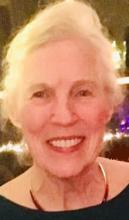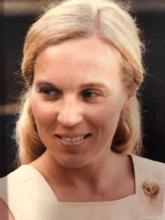We all know of Diana's scholarly, pedagogical and administrative accomplishments: they are matters of record---published or on line. Here I will offer a few personal reminiscences--which are not published or on line: hence you can find them only here.
Diana and I are of the same generation: I was born in 1938 shortly before the Munich agreement; she in the same year shortly thereafter. Our generation has sometimes been dubbed "the silent generation". That certainly does not describe Diana. Me maybe.
I first met Diana in September of 1965 when she was in my seminar on the Gothic language. Although her interests were not primarily linguistic, Diana was one of the best students in the class. Charles Barrack was also in the class and also one of the best. Both eventually became treasured colleagues of mine in the department. Years later when Barrack published a book on Sievers' Law--a phonological process of Proto-Indo-European and early Germanic--Diana remarked to him and me how admirable it was to get a whole book out of a phenomenon which had been given only a brief paragraph in our Gothic textbook. So Diana had remembered even the more obscure facts from the Gothic course. Maybe she had a point: linguists can in fact sometimes get a lot of mileage out of trivia.
Later in her career Diana was a long-serving chair of the German department. She was good. She had most of the traits essential for a good chair: she was unflappable, "a no-drama Diana"; she was eminently fair; she had excellent judgment and was instrumental in numerous significant hirings for our department; and neither she nor her husband Ernst Behler--also a chair in comparative literature--ever harbored grudges. Finally and perhaps most importantly, Diana also knew the limits on the power of a chair. She always wanted to persuade rather than to command. She well knew that her position as chair involved "die Kunst des Moeglichen"--to put it in Bismarckian terms. I.e., she was a consummate diplomat.
When she eventually retired from the chairmanship, university president Gerberding made it a point to attend the reception held in her honor. This was clearly the result of the well-deserved respect in which she had been held by the university administration.
Perhaps her only major mistake as chair was to select me on occasion to be acting chair when she was on leave. Actually, it was a learning experience and I learned a lot from it. First, I learned that the chairmanship is a fairly thankless job.
Second, while I was chair I stupidly gave special consideration to some people and justifiably fell afoul of the administration. Diana backed me to the hilt. But she did impart to me that it was the better policy to act in accordance with the Kantian dictum "Handle damit...etc."--i.e., don't give any favors unless you can do it generally.
Finally, Diana, many thanks for what you have given to our department, our profession and to me personally. I close with a quote from one of your course reviews: "awesome lady": that's you.
Take care. Joe Voyles

